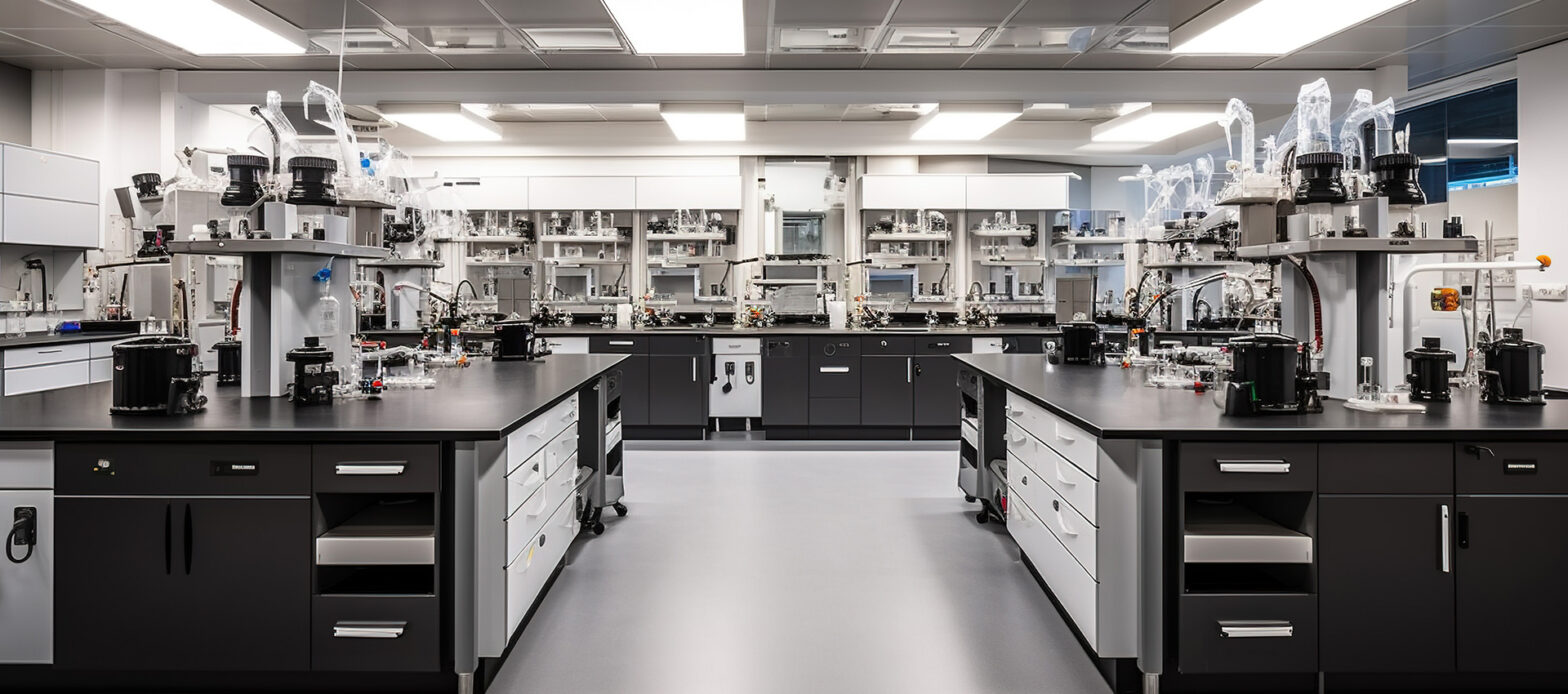
Choosing the right countertop material for laboratories and workspaces is crucial, as it impacts durability, chemical resistance, and maintenance. Epoxy resin, phenolic resin, and stainless steel are three popular options, each with unique properties suited for specific applications. Here’s a detailed comparison to help you choose the best countertop for your needs.
Use: Ideal for chemical labs, biology labs, and research facilities.
Technical Specs: Epoxy resin is a non-porous, seamless material known for its high resistance to chemicals, heat, and moisture. These countertops are made from sheets cast using a modified epoxy resin blended with non-asbestos inert fillers. This compounded mixture is cured and thermoset, creating a durable, heat-resistant surface. It withstands harsh solvents and acids, making it a preferred choice for chemical-heavy environments.
Life Span: 20-30 years with proper maintenance.
Pros:
Cons:
Use: Suitable for wet labs, healthcare environments, and educational labs.
Technical Specs: Phenolic resin countertops are made from layers of kraft paper impregnated with phenolic resin and topped with melamine resin. When combined with formaldehyde, the melamine resin forms a durable thermoset plastic, offering excellent strength and resistance to moisture and moderate chemicals. They are lighter than epoxy but slightly less resistant to extreme conditions.
Life Span: 15-20 years
Pros:
Cons:
Use: Common in pharmaceutical labs, food processing areas, and sterile environments.
Technical Specs: Stainless steel is a low-carbon alloy with about 10% chromium, offering excellent corrosion resistance. Enhanced with nickel in some grades, it remains durable and oxidation-resistant and is capable of withstanding temperatures up to 1500°F.Stainless steel is highly durable, corrosion-resistant, and easy to sanitize. It is ideal for environments where hygiene is critical. Stainless steel is also resistant to heat but may show fingerprints and scratches over time.
Life Span: 20-50 years with proper maintenance.
Pros:
Cons:
The choice between epoxy, phenolic resin, and stainless-steel countertops depends on the intended use and environmental demands. Epoxy resin is best for chemical-intensive labs, phenolic resin works well for educational or healthcare settings, and stainless steel is perfect for spaces requiring the highest levels of hygiene, such as pharmaceutical labs or kitchens. At OxyMed, we understand that every workspace is unique-let us help you find the perfect countertop solution to meet your needs and ensure long-term performance.